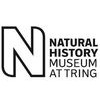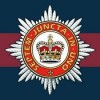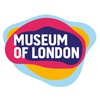
Fantastic Beasts: The Wonder of NatureDiscover where the real world and the Wizarding World intertwine. Bringing you the latest stories and answering your big questions about nature. Check out our news, features, videos and activities on everything from dinosaurs to the planetary emergency. Tyrannosaurs competed by biting each other's faces, research suggests.
The bites could have been part of competition for mates, food and dominance between some of the largest land predators to have ever lived. Get email updates about our news, science, exhibitions, events, products, services and fundraising activities. You must be over the age of 13.
The bites could have been part of competition for mates, food and dominance between some of the largest land predators to have ever lived. Get email updates about our news, science, exhibitions, events, products, services and fundraising activities. You must be over the age of 13.
Services
About us
Report
We use our unique collections and unrivalled expertise to tackle the biggest challenges facing the world today. We care for more than 80 million objects spanning billions of years and welcome more than five million visitors annually. We are always looking for talented people to help maintain the Museum's status as a renowned scientific institution and one of the UK's most popular visitor attractions.
Explore the Museum
Report
Discover what you can see and do in our free galleries, and where you can eat, drink and shop across four zones: Blue, Green, Red and Orange. Whether you're visiting for the first time or the fiftieth, these self-guided tours will take you through the best the Museum has to offer. Round up your family and take a tour to see some of the Museum's biggest sights including dinosaurs, whales and volcanoes.
Access
Report
We aim to provide a friendly, accessible environment for all our visitors and the widest possible access to our buildings, exhibitions and collections. Follow @NHM_Visiting on Twitter for the most up-to-date entrance information during peak times. All D/deaf and disabled people, and their accompanying family members and personal carers can jump the queues to enter the Museum.
Discover
Report
Six new species of dragonflies and damselflies have arrived in Britain since the late 1990s. Tyrannosaurs competed by biting each other's faces, research suggests. The bites could have been part of competition for mates, food and dominance between some of the largest land predators to have ever lived.
British wildlife
Report
The British Isles are home to an astounding variety of plants and animals - there are over 4,000 species of beetles alone - and new species are still being discovered and arriving here from overseas. Be inspired to get outdoors with friends and family and learn what's living in your neighbourhood. Uncover threats to native wildlife, including invasive species, and explore what's being done to protect it.
Reviews

Be the first to review Natural History Museum.
Write a Review




